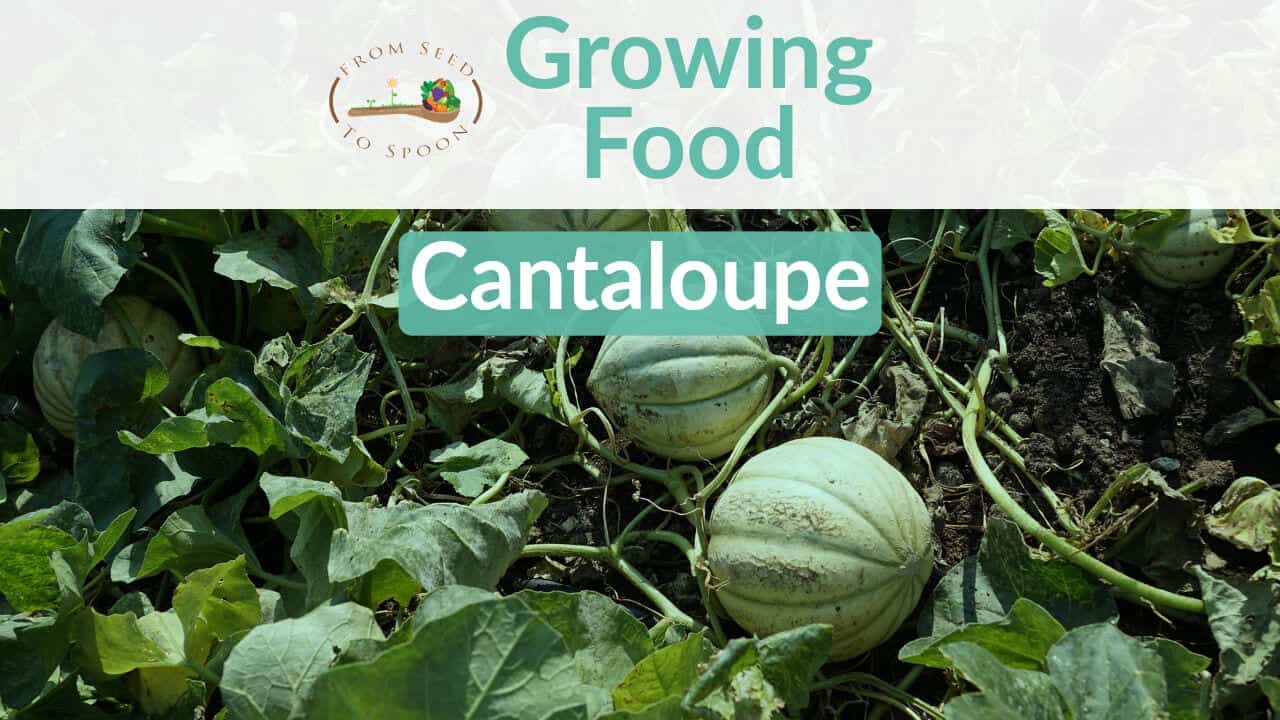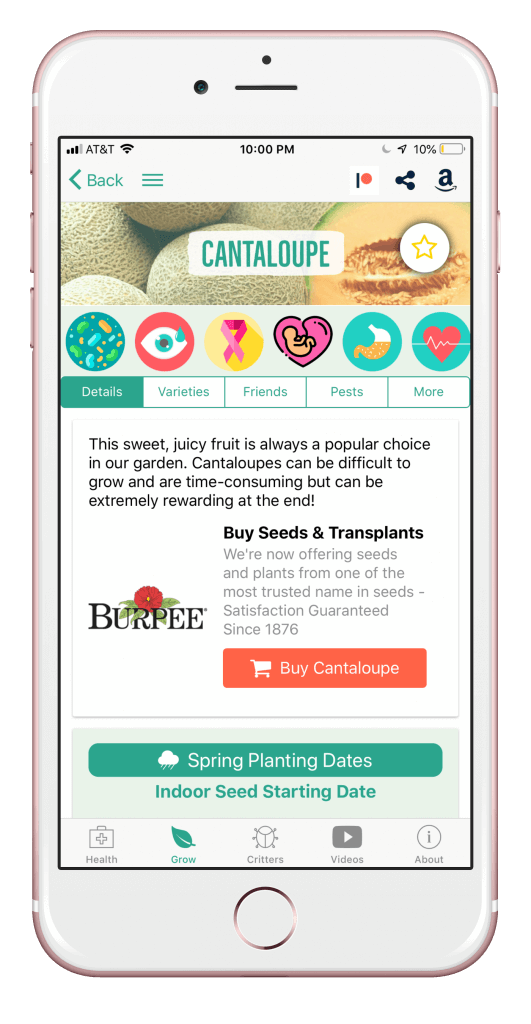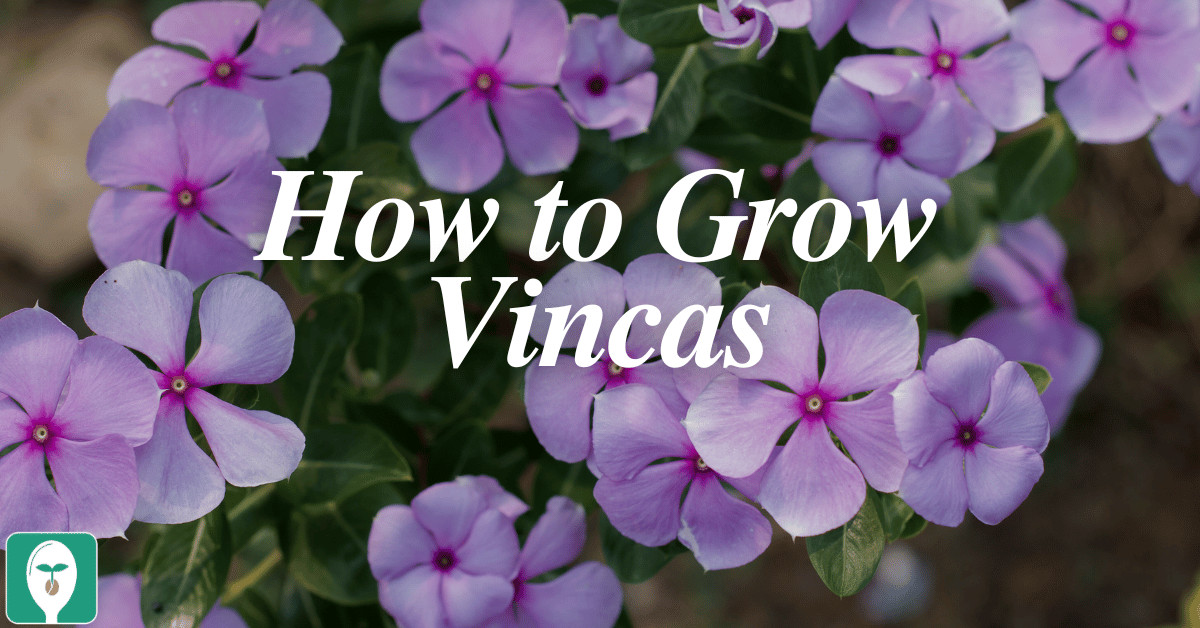How to Grow:
Sow seeds indoors 2 weeks before transplanting to get a head start on your season. You can begin plant outdoors 2 weeks after your last spring frost and throughout the summer up to 14 weeks before your first fall frost. You can see specific dates for your location using our FREE iOS, Android, and Universal Web App.
Sow 1 seed per 2 square feet about 1 inch deep. You can can place a trellis by the squares for the vines to help to save space and grow vertically. Make sure to plant in a space that has full sun. Take care to notice what plants are around the area as well, see the companion plant section below. It will take approximately 5-14 days for your seeds to sprout. Provide your cantaloupe plant with moderate and consistent moisture from germination until the fruit is almost full-sized. Reduce watering significantly at this time to improve sweetness. Avoid wetting the leaves when watering.
Companion Plants:
Companion planting is a vital part of organic gardening. Companion plants assist in the growth of others by attracting beneficial insects, repelling pests, or providing nutrients, shade, or support. There are also plants that do not like being next to each other. Some plants get too tall and can provide too much shade for your plant. Sometimes certain plants attract the same pests, so it is important to try and separate these. Herbs are especially great companion plants because they help to repel pests from your other plants!
| Good | Bad | |
| Acorn Squash | Mustard Greens | Cucumbers |
| Basil | Nasturtiums | Potatoes |
| Broccoli | Okra | Watermelon |
| Butternut Squash | Onions | |
| Catnip | Oregano | |
| Chives | Peas | |
| Cilantro/Coriander | Pumpkin | |
| Corn | Radish | |
| Dill | Sage | |
| Garlic | Spaghetti Squash | |
| Marigolds | Summer Squash (Zucchini) | |
| Marjoram | Sunflowers | |
| Mint | Tarragon | |
See companion plants for 70+ foods in our FREE iOS, Android, and Universal Web app!
Pests:
Pests can be one of the most difficult challenges you face in the garden. We strive to grow food without the use of pesticide and luckily there are natural solutions for most of these nasty pests! The pests listed below are common ones for cantaloupe:
- Aphids
- Birds
- Cucumber Beetles
- Cutworms
- Fruit Worms
- Groundhogs (Woodchucks)
- Raccoons
- Squash Bugs
- Squash Vine Borer
- Voles (field mice)
Learn more about pests and beneficial insects in our FREE iOS, Android, and Universal Web App!
Harvesting:
You will begin to be able to harvest your cantaloupe approximately 80-100 days from first sprout. When fruit starts to give off a strong melon scent, it means it’s getting close. The tendrils closest to the fruit will also turn brown, and the stem should snap off easily if it ready to harvest.
How to Prepare:
Learn more about growing over 80 different foods, including how to manage various pests in our FREE iOS, Android, or new Universal Web App!

Carrie Spoonemore, co-founder of “From Seed to Spoon,” stands as a beacon of inspiration for gardeners and health enthusiasts alike. Her journey alongside her husband, Dale Spoonemore, in creating a platform that demystifies gardening and promotes a healthier lifestyle, has made a significant impact on individuals around the globe. Through the “From Seed to Spoon” app, Carrie has dedicated herself to empowering people to take control of their health and environment by growing their own food.
With a profound belief in the power of gardening to improve mental and physical health, Carrie’s contributions to the Seed to Spoon blog reflect her holistic approach to wellness. Her articles often focus on the nutritional benefits of homegrown fruits and vegetables, organic gardening practices, and the mental health benefits of spending time in nature. Carrie’s expertise in health science shines through in her detailed discussions on how specific plants can contribute to a balanced diet and overall well-being.
Carrie’s passion for gardening is deeply intertwined with her commitment to family and community wellness. She frequently shares personal stories of how gardening has brought her family closer together, offering practical tips for involving children in gardening activities and making it a fun, educational experience. Her writing encourages families to explore gardening as a means of spending quality time together while learning about nature and sustainability.
In addition to gardening advice, Carrie’s contributions to the blog include insights into the use of technology to enhance the gardening experience. She has played a crucial role in designing the “From Seed to Spoon” app to be user-friendly, ensuring that users of all ages and backgrounds can navigate the complexities of gardening with ease. Her vision for the app is not just as a gardening tool but as a vehicle for change, inspiring individuals to adopt a more sustainable lifestyle by growing their own food.
Carrie Spoonemore’s presence on the blog is marked by her compassionate approach to teaching and her unwavering belief in the transformative power of gardening. Her work continues to inspire a community of gardeners to pursue a healthier, more sustainable way of living, proving that with the right tools and knowledge, anyone can become a gardener and advocate for their health and the planet.








9 thoughts on “Cantaloupe: How to Grow and When to Plant in Your Backyard or Patio Garden!”